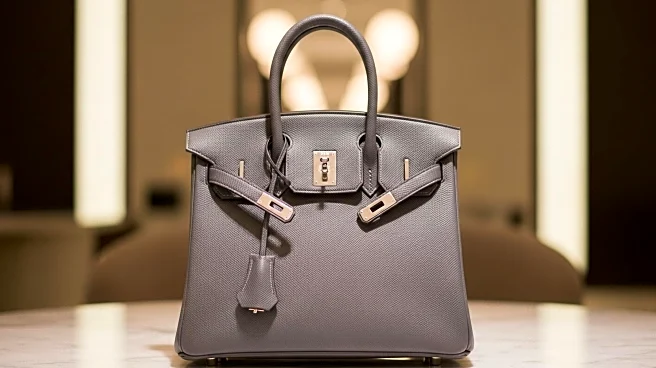What's Happening?
A California federal judge has dismissed an antitrust lawsuit against Hermès, which accused the luxury brand of conditioning the sale of its Birkin handbags on the purchase of other Hermès products. The lawsuit, filed by Tina Cavalleri and others, alleged that Hermès engaged in an unlawful tying arrangement, violating the Sherman Act and California law. The plaintiffs claimed that Hermès coerced customers into buying ancillary products to qualify for purchasing Birkin bags. However, the court found that the plaintiffs failed to adequately allege essential elements of a tying claim, including market definition, market power, and anticompetitive harm.
Why It's Important?
The dismissal of the lawsuit is a significant victory for Hermès, highlighting the challenges of fitting luxury retail practices into U.S. antitrust law. The case underscores the difficulty of proving antitrust violations in the luxury goods market, where exclusivity and scarcity are common practices. For consumers frustrated by access rules around luxury products, the ruling serves as a reminder that courts require evidence of harm to competition for antitrust claims. The decision may influence future legal strategies for similar cases and impact consumer perceptions of luxury brand practices.
Beyond the Headlines
The ruling raises questions about fairness in luxury retail practices, particularly regarding access to coveted products like Birkin bags. While Hermès' practices may seem exclusive, the court's decision indicates that such practices do not necessarily violate antitrust laws unless they harm competition. This case may prompt discussions about transparency and consumer rights in the luxury market, potentially leading to changes in how luxury brands manage product allocation and customer relationships.








